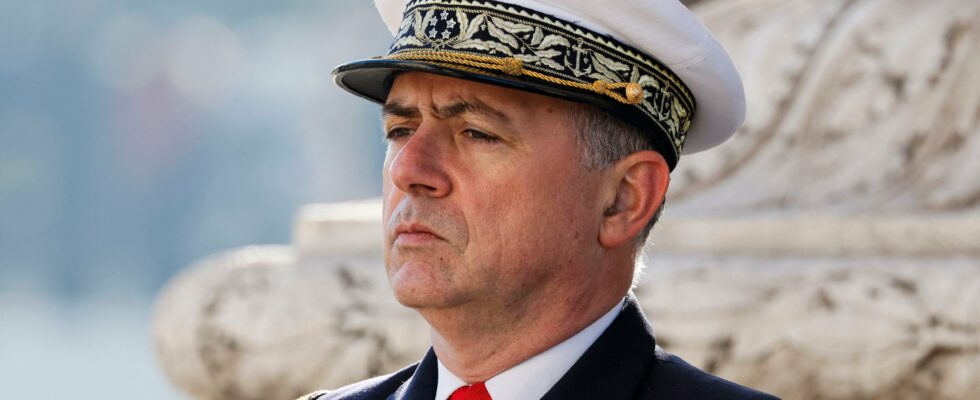Admiral Pierre Vandier, former chief of staff of the Navy and currently number two on the general staff of the French armies, has been appointed “Supreme Allied Commander Transformation (SACT)”, one of the two strategic commanders of NATO, AFP learned this Friday, June 21. Aged 56, this “veteran” of the French Naval Air Force succeeds General Philippe Lavigne, of the Air and Space Force, according to a French military source and a diplomatic source in Brussels.
The position has been held by a French general officer for many years and is headquartered in Norfolk, United States. The Alliance’s second strategic post, Supreme Allied Commander Europe (SACEUR), is held by an American based in Brussels.
At a time when NATO’s strategic role has increased considerably against a backdrop of Russia’s invasion of Ukraine, Admiral Vandier, 56, will be responsible in particular for “promoting and supervising the continued transformation of the forces and capabilities of the Alliance”, according to the job description on the NATO website. “It contributes to identifying and then prioritizing future capability needs and interoperability needs” and takes responsibility for “the training and training programs” of the organization, it is further detailed.
Former commander of Charles-de-Gaulle
A graduate of the Naval Academy, Pierre Vandier received his naval aeronautics pilot’s license in 1993. He then led missions in the former Yugoslavia, Kosovo and Afghanistan within the French naval air group.
Commander of the frigate Surcouf, in 2008 he participated in the operation to free the hostages held by pirates on the sailboat Ponant in the Indian Ocean. In the summer of 2011, he took on the role of head of operations for the Africa zone and participated in the supervision of French air operations in Libya. In 2013, he headed the crisis unit for Operation Serval in Mali. He then commanded the aircraft carrier Charles-de-Gaulle until 2015, engaged during this period in Operation Chammal within the international coalition against the Islamic State (IS) group in Iraq and Syria.
Promoted to rear admiral in 2017, he was appointed commander of the Toulon defense base. In 2018, he published his work on “Deterrence in the Third Nuclear Age” (ed. du Rocher), before becoming from 2018 to 2020 the head of the military cabinet of the Minister of the Armed Forces, Florence Parly.
“An era of structural instability”
His military career took off even further from 2020, when he was appointed Chief of Staff of the Navy. He particularly impressed with his words and his ability to make maritime threats concrete and tangible, reported L’Express, and won most of the budgetary arbitrations during the military programming law promulgated in 2023. Enough to make him climb to the position of major general of the armies from September 1, the second highest ranking soldier in the French army.
In an interview given to Figaro last May, Pierre Vandier affirmed that the world had entered “an era of structural instability. A balance of three, United States, Russia, China, is much more complex to find than a balance of two. All the more so more than the ‘global South’ seeks to invite itself into the discussion, hoping to benefit from it.
He further explained that “the border of the threshold of aggression is today much more complex: new weapons or new domains, such as space or cyber, make it possible to blur intentions and complicate attributions.” By becoming one of NATO’s highest commanders, his room for maneuver in the face of these new threats and new risks should greatly increase.
